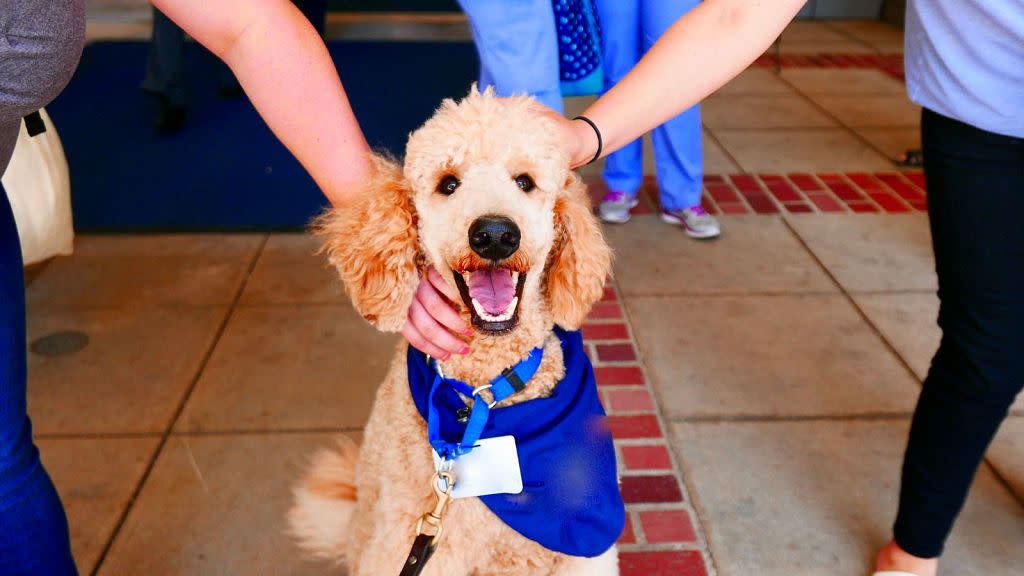Spending time with a dog reduces stress and increases concentration, study finds

Should we switch from calling a dog man’s best friend and instead call it man’s best therapist?
While canines are already used in hospitals and schools to alleviate stress, new research shows what happens in the brain when humans interact with a dog.
A team from Konkuk University in South Korea investigated the effects of people engaging in several activities with a dog by using an electroencephalogram (EEG), a test used to measure electrical activity in the brain using electrodes, on 30 adults.
Researchers had participants interact with a 4-year-old standard poodle “fully trained in basic obedience, manners, aggression and sociability,” during limited sessions as to not overwork her.
The people’s emotional responses were also evaluated using different questionnaires and self-reporting tests depending on the activities with the dog.
There were eight activities in total including playing, giving her treats, massaging, or taking pictures with her.
They published their findings in the journal PLOS ONE.
During all the activities with the dog, the participants reported feeling less tired and depressed.
Feeding, massaging and hugging the dog led to an improved mood with lower stress levels being reported.
More concentration without adding stress
The participants’ moods were not the only thing affected by the activities.
The EEG showed an increase in beta waves during massage, grooming, and playing with the dog. Beta waves are linked to attention and concentration.
The intensity of the beta waves increased with the intensity of contact with the animal.
The next step for the research will be to corroborate these results with a larger number of participants.
One potential bias is that the participants agreed to join the study due to their appreciation of dogs.
Still, the authors said the study “provides valuable information for elucidating the therapeutic effects and underlying mechanisms of animal-assisted interventions”.
Thanks to their therapeutic effects on people, dogs are already widely used clinically whether it is as emotional support in hospitals or to assist disabled patients.
This effect is usually evaluated by measuring hormonal levels before and after the interaction.
Previous studies showed that the hormone oxytocin, which plays a role in social bonding and affection, increases when people interact with dogs while cortisol levels, which are linked to stress, decrease.
Therapy dogs also reduce patients’ pain levels during their hospital stays and lower their blood pressure, according to the Johns Hopkins Hospital in the US.


